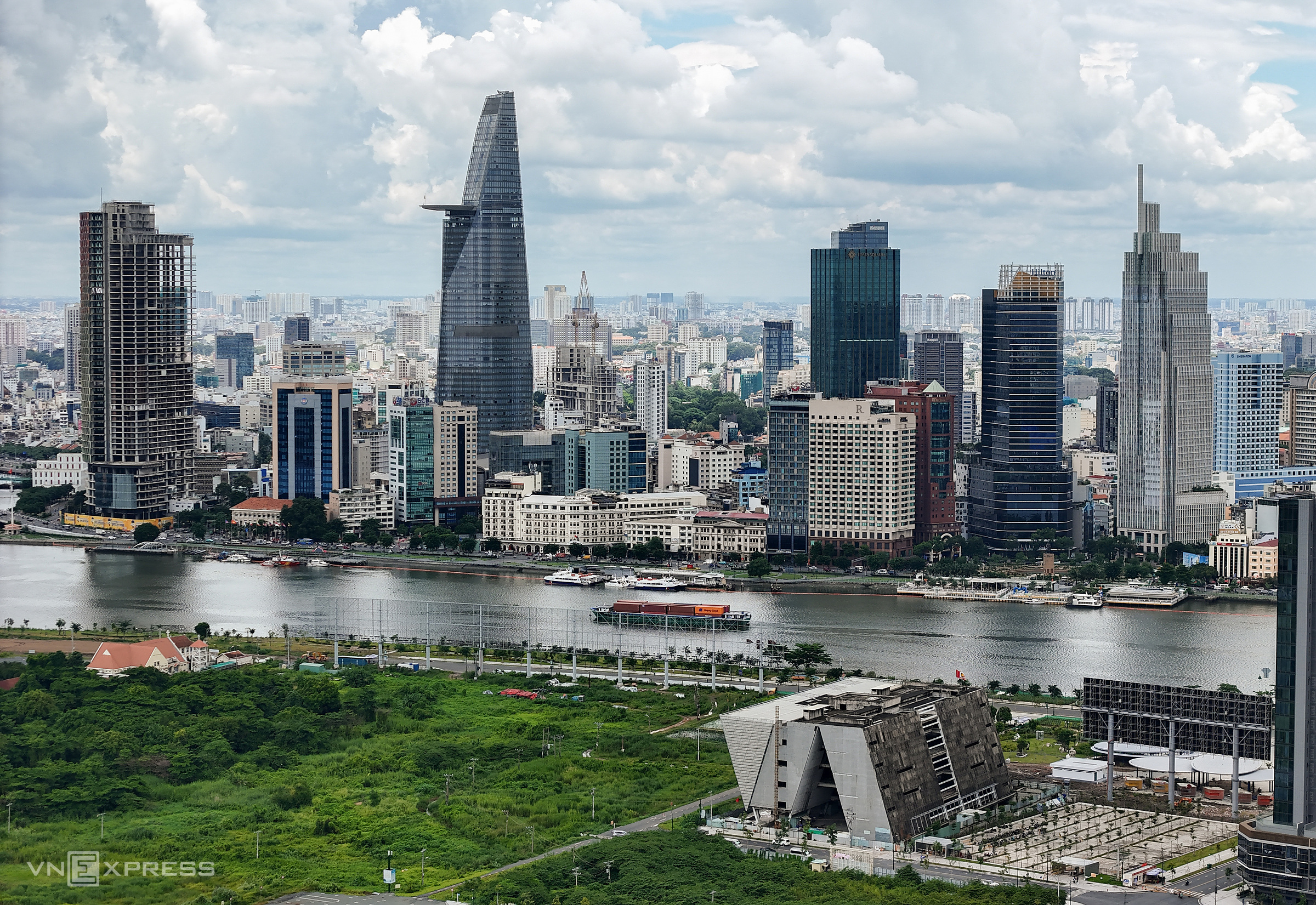This is outlined in the draft plan "Developing Ho Chi Minh City into a major service hub for the country and the region with high-end, modern, high-value-added services".
According to the Ho Chi Minh City Department of Industry and Trade, the agency leading the project, the proposal of 5 sectors, including finance (banking and insurance), media, logistics, science and technology, innovation, and tourism, is based on research and calculations regarding the current situation and long-term prospects. Once designated as "strategic priorities," the city will prioritize resources and policies to facilitate exceptional growth in these 5 areas.
The research team notes that finance is the largest contributor to the service sector, as Ho Chi Minh City is establishing an international financial center and providing capital for other industries. Media, with its foundation in knowledge and high technology, supports other sectors like the digital economy and Industry 4.0. The city's logistics infrastructure is increasingly improving, opening up significant opportunities.
Science, technology, and innovation have a moderate value-added level but possess high intellectual content and strong potential. Tourism is developing steadily, with exceptional prospects due to the city's special position domestically and internationally.
Besides the 5 strategic sectors, the plan also identifies 3 potential areas: education and training, healthcare, and the digital economy. Additionally, wholesale and retail, real estate, arts, sports, and entertainment are identified as supporting sectors for the service industry.
After the merger, the service sector accounts for 51% of the new Ho Chi Minh City's GRDP structure (64% for the former Ho Chi Minh City). In terms of value, the economic powerhouse's services account for 31% of the country's total added value in this sector, surpassing centers like Hanoi, Quang Ninh, Da Nang, and Can Tho. This confirms the city's leading position and special influence within the national service structure.
However, compared to the region, services in Ho Chi Minh City are not yet strong enough. According to the Global Urban Competitiveness Report (GUCR) of over 1,000 cities worldwide, Ho Chi Minh City ranks only alongside Manila and behind Singapore, Kuala Lumpur, Bangkok, and Jakarta.
"The proportion of services in the city's GRDP structure previously experienced strong growth, but it remains lower than major service centers in the region and globally," stated the Ho Chi Minh City Department of Finance.
Currently, this proportion is 88% in Bangkok (Thailand); 71% in Singapore; and 70% in Kuala Lumpur (Malaysia).
 |
Ho Chi Minh City center viewed from Thu Thiem in 8/2024. Photo: Quynh Tran |
Ho Chi Minh City center viewed from Thu Thiem in 8/2024. Photo: Quynh Tran
According to the Department of Finance, challenges impacting the competitiveness and development of Ho Chi Minh City's service sector include a lack of synchronous planning, integrated vision, high logistics costs, and weak infrastructure connectivity. The city also lacks high-quality human resources, has cumbersome administrative procedures, ineffective policy implementation, and subpar infrastructure.
At a seminar consulting experts on 9/12, Bui Ta Hoang Vu, Director of the Ho Chi Minh City Department of Industry and Trade, noted that many service sub-sectors are still developing extensively rather than intensively, lacking specialized development and failing to form integrated value chains and distinctive brands. Therefore, he believes it is urgent to restructure and plan the service sector, apply technology and AI, promote linkages, and establish a high-quality service ecosystem.
Nguyen Van Dung, Vice Chairman of the Ho Chi Minh City People's Committee, affirmed that high-quality services are a strategy for sustainable urban development, contributing to enhancing international competitiveness and residents' quality of life. "This is considered one of the fundamental solutions for Ho Chi Minh City to maintain its position as a leading economic hub, creating new growth momentum in the coming period," he said.
Vien Thong












